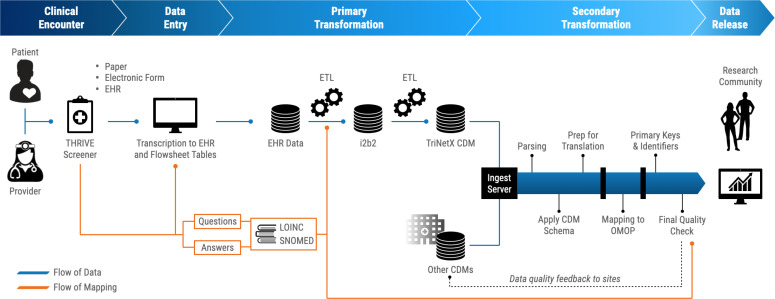Figure 2:
Overall workflow for SDoH screening tool data integration into N3C. Clinical encounter: A patient completes the SDoH screening tool, either on their own, or administered by a healthcare provider, and per institutional protocol. The screening tool itself may be a paper form, an electronic form, or entered directly into the EHR. Data entry: The patient’s responses are entered into the EHR, storing FlowSheet records for the responses to the screening. Primary Transformation: Before transformations may happen, subject matter experts mapped the THRIVE questions and possible answers to LOINC and SNOMED codes. The EHR data goes through an ETL to be converted into an i2b2 data instance and LOINC and SNOMED codes are incorporated during this transformation. The i2b2 data instance is ingested by TriNetX, one of the acceptable N3C CDMs for data submission. Secondary Transformation: TriNetX generates the dataset for upload to N3C data ingestion pipeline, which gets parsed, applied to CDM schema, then mapped to OMOP. A final quality check provides feedback to the contributing sites, prior to being published to the cloud-based FedRamp N3C Enclave for use by the research community.

